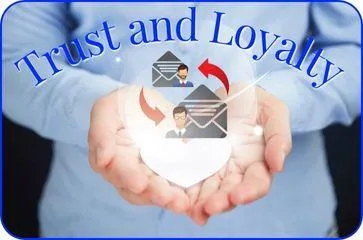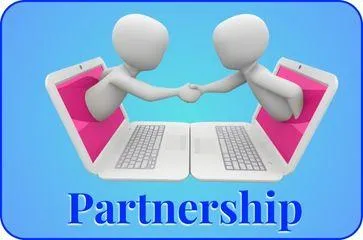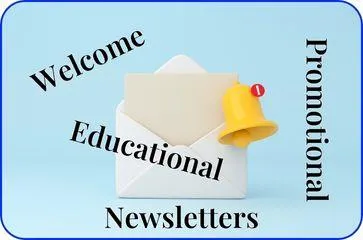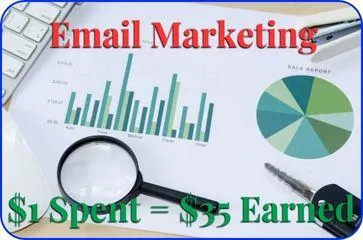
Email Relationships
What Are Email Relationships?
Email relationships are a direct and reliable way to communicate with your clients, providing information and resources tailored to their needs. Unlike social media, where messages can get overlooked, emails go straight to their inboxes, ensuring they receive your updates, insights, and offers. This makes email an efficient channel for delivering value and staying connected without distractions.
Consistent communication through email helps build trust by showing clients you understand their challenges and care about their success. Over time, this loyalty grows as clients see your emails as a dependable source of support and solutions. By maintaining this connection, you reinforce your role as a reliable partner in their journey.
Well-managed email relationships are highly effective at driving business growth.


How Email Relationships Work
Email relationships rely on clear, two-way communication that fosters trust and engagement. The process starts with delivering valuable and timely messages tailored to your clients' interests or needs. Clients respond by opening, clicking, or replying to your emails, giving you insights into what resonates with them. These interactions allow you to refine your approach, ensuring each message becomes more relevant and effective over time.
A typical email exchange might include updates on industry trends, answers to client questions, or invitations to take action, such as downloading a resource or scheduling a consultation. Your clients benefit from consistent, thoughtful outreach, while you gain the opportunity to deepen connections, address challenges, and showcase your expertise. By regularly engaging in this cycle of communication, email becomes more than just a tool—it becomes a trusted channel for effective interactions that drive mutual success.
Types of Emails You Can Use
There are several types of emails that help you connect with your audience in meaningful ways. Each type serves a unique purpose and strengthens your relationship with your clients:
Welcome Emails: Introduce new clients to your business, thank them for joining, and share what they can expect from you.
Newsletters: Provide regular updates, tips, and insights to keep your clients informed and engaged.
Promotional Emails: Drive sales with special offers, discounts, or announcements about new products or services.
Educational Emails: Share tutorials, how-to guides, or insights that solve problems or teach something valuable.
Re-engagement Emails: Reach out to clients who haven’t interacted in a while, offering incentives to reconnect.


The Effectiveness of Email Relationships
Email marketing continues to be one of the most effective tools for businesses to connect with their audience and drive results. Studies show that for every $1 spent on email marketing, the average return is $35, making it one of the highest ROI channels available (source). Additionally, 59% of marketers report email as their biggest source of ROI, and 64% of small businesses use email to engage their customers (source).
Emails also outperform social media in key areas like direct conversions and audience stability. A Reddit discussion highlights that email lists offer higher reliability compared to algorithm-driven platforms, with open rates reaching 30-40% when the content is valuable and tailored. These results showcase the unmatched potential of email to build strong connections and deliver measurable outcomes for businesses.
With this approach, the Benefits of Email Relationships section can remain focused on trust, loyalty, and connection, while this new section provides the evidence and statistics.
Benefits of Email Relationships
Emails are one of the most effective ways to connect with your clients because they allow you to deliver tailored messages directly to their inboxes. Unlike other communication channels, emails feel personal, helping you build trust and loyalty. With a thoughtful approach, your messages can inspire action, strengthen relationships, and keep your business important to your clients.
One of the key strengths of email is how measurable it is. You can track open rates, click-through rates, and conversions to see exactly how your emails are performing. This data helps you understand what resonates with your clients and make improvements over time. For example, if a certain type of subject line gets more opens, you can refine future emails to match that style.
By combining a personal touch with the ability to analyze results, email becomes both impactful and strategic. Each message is an opportunity to show value, drive engagement, and build lasting relationships with your clients—all while having clear insights to guide your success.

